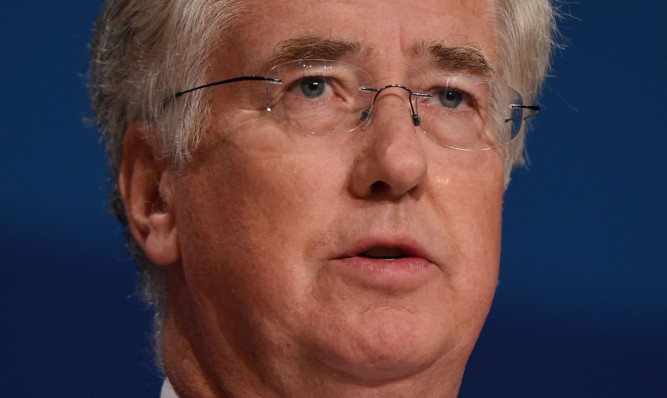The head of the armed forces was “perfectly entitled” to caution that Jeremy Corbyn’s position on Trident could undermine the credibility of the deterrent, the Defence Secretary has said.
Michael Fallon dismissed criticism of General Sir Nicholas Houghton after the Labour leader accused him of interfering in “issues of political dispute”.
In an interview on Remembrance Sunday, Gen Houghton was asked about Mr Corbyn’s insistence that there were no circumstances in which he would press the nuclear button.
“It would worry me if that thought was translated into power,” the Chief of the Defence Staff told the BBC’s Andrew Marr Show.
“The reason I say this – and it’s not based on a personal thing at all – is purely based upon the credibility of deterrence. The whole thing of deterrence rests upon the credibility of its use.
“When people say they’re never going to use the deterrent, I say you use the deterrent every second of every minute of every day – the purpose of the deterrent is you don’t have to use it because you effectively deter.”
In a strongly-worded statement, Mr Corbyn branded the comments a “matter of serious concern” and said he was writing to Mr Fallon to complain.
“It is essential in a democracy that the military remains political neutral at all times,” he said.
“By publicly taking sides in current political arguments, Sir Nicholas Houghton has clearly breached that constitutional principle.”
But Mr Fallon told BBC Radio 4’s Today programme: “Sir Nicholas made it very clear that he wasn’t attacking the Labour leader personally, he was asked a question about the credibility of the deterrent and he answered it.
“He is the Government’s principal military adviser, he speaks in public, he has given lectures on defence and on the importance of the deterrent.
“He gave a straight answer to a straight question, which is that the deterrent relies for its credibility on the fact that you may be prepared one day to use it.
“He was asked about the nuclear deterrent and he gave an answer, and he is fully entitled to do that.”
Mr Fallon added: “The nuclear deterrent is at the very heart of our defence. It is something that has been common to all political parties in Britain since the Second World War.
“It is a key pillar of our defence. It would be pretty odd if the chief of the defence staff said, ‘I can’t answer any questions about that’.
